Testosterone Therapy in Hawaii
At Hormone Therapeutics, we specialize in providing testosterone therapy in Hawaii, offering hormone replacement therapy and testosterone supplementation to men across the Hawaiian islands. Our team of expert Hawaii licensed physicians will assess your low testosterone symptoms, evaluate your medical history, request blood tests, and diagnose your specific conditions to prescribe tailored testosterone therapy, estrogen, and hormone optimizing treatments.
Recapture your life through working with the best testosterone physicians in Hawaii!
Do you miss how you used to feel? Are you longing to recapture the vitality of your younger days? The average lifespan has significantly increased in the past century, and our endocrine system is still catching up with these rapid changes. Whether you’re a weekend warrior or struggling to keep up with your children, physical activities like jogging, tennis, skiing, weightlifting, or biking may be getting more challenging. Additionally, you may find yourself more irritable and lacking the zest for life you once had. Many of these symptoms can be attributed to depleted hormones. We are here to help you regain your energy, shed excess weight, preserve muscle mass, sharpen your mind, and reignite your romantic feelings while improving your overall health.To embark on your journey towards reclaiming your life, get in touch with us today. You can call us or provide your name, email, and phone number to schedule your initial consultation. Hormone Therapeutics will guide you through the entire process, starting with a local face-to-face physical examination and arranging your blood tests either locally or through convenient mail-in options. Our experienced physicians will carefully review your medical records, symptoms, history, examination results, and blood tests to make an accurate diagnosis and prescribe the appropriate testosterone treatment or other hormones and supplements to help you regain your vitality. Your prescribed treatment will be conveniently delivered to your home or office, eliminating the need for inconvenient weekly office visits for injections. Throughout your treatment, our dedicated clinical advisors will provide continuous support, guiding you through the options and offering consultation during your follow-up testing.For a monthly fee of $199, you will receive comprehensive treatment, which includes:- Review of blood testing 2-3 times per year
- Physician consultation
- All medications, shipping, supplies, and treatments
Testosterone Therapy in Hawaii
Hormone Therapeutics testosterone therapy, hormone balancing and other programs are available across Hawaii, including:Honolulu testosterone
Oahu testosterone
Maui testosterone
Kauai testosterone
Hawaii testosterone
Molokai testosterone
Lanai testosterone
Niihau
Mililani
Pearl City
Kapolei
Kaanapali
Waimalu
Waikiki
Wailea
Testosterone Therapy in Hawaii
Hormone Therapeutics June 7th, 2023
Posted In: Uncategorized
Tags: free testosterone, hawaii, hawaiian, optimization, testosterone, Total Testosterone, TRT
Top 7 Reasons to Naturally Increase Testosterone levels
A host of human hormone research studies have demonstrated that, in order to improve health and naturally increase testosterone levels, it must go hand-in-hand.The hard part of sifting through all of that complex research is that it’s often difficult to tell the cart from the horse. Health and Testosterone are so closely linked in men that it’s hard to see when low T causes poor health, or when poor health causes low T.Do we become healthier when we naturally increase testosterone levels, or by making positive lifestyle changes, do our bodies naturally increase testosterone levels? One thing that is clear, though, is that by taking manageable steps to naturally increase your testosterone, you’re putting yourself into a Win/Win situation. These lifestyle choices are just good health advice, and they also increase your T. We have also seen a scientific study of 83,000 US veterans over a 15 year period assessing the benefits of Testosterone Therapy.This study showed that US veterans with low testosterone, supplemented under Physician guidance back to normal levels have lower incidence of heart attack, stroke, prostate cancer and mortality.Here are our Top Seven reasons to naturally increase testosterone levels that will undoubtedly make you a much happier and healthier Man (increasing testosterone does help with all of the symptoms and issues caused by Low T.Increase Muscle Mass and Overall Strength
There is no doubt that an increase in testosterone will positively impact your entire muscular system by increasing crucial muscle protein synthesis that contributes directly to muscular growth. An upgrade for your muscular system, at any and every age, will naturally lead to a healthier, more confident and capable you.Increase Overall Heart Health
The heart is the single most important muscle in your body. An increase in testosterone will not, by itself, lead to the prevention of cardiovascular disease, but the direct benefits derived from naturally increasing your Testosterone level will lead directly to more sustainable cardiovascular health if your physician monitors and manages the patients red blood cell count and hematocrit levels.Decrease Your Body Fat Percentage
Every medical study has proven that men suffering from obesity have a consistently lower-than-average testosterone level (and coinciding above-average estrogen levels) and there are clear reasons for this. When our testosterone levels decrease, insulin and glucose regulation decreases accordingly as the body’s natural ability to metabolize fat also declines. Testosterone levels play a crucial role in the body’s insulin and glucose regulation as well as the body’s ability to metabolize fat.Fortify Your Skeletal System
As we age, men can suffer from the debilitating effects of osteoporosis but testosterone is an often overlooked health ingredient that plays a significant factor in overall bone density and strength. Testosterone is a key component in effective bone mineralization and resorption, increasingly important as we age and our bones tend to lose a degree of density.Reignite the Libido
The hard fact is that the primary function of testosterone is as a vital reproductive hormone. It returns desire as well as sexual function.Cognitive Ability
Testosterone helps regulate cortisone, which is a stress hormone, and affects the efficiency of our brain’s neurotransmitters. When men suffer from decreased testosterone levels they lose some ability to effectively regulate cortisol levels, which can cause neurotransmitters malfunction and lapses in memory.Delay, Decrease or Offset Effects of Alzheimer’s
Alzheimer’s and dementia are most frequent in 65+ men often caused by Andropause. In addition, a healthy testosterone level is a distinct competitive advantage in the game that we call “life”. Feel the way you used to feel and improve your drive, confidence, energy, look, outlook, sexual interest and function while living a healthier life.Hormone Therapeutics Physician Guided Testosterone Replacement Therapy
These are all improvements you can achieve through natural means. Natural means will increase testosterone levels, however, they will not always optimize your levels to where you feel the way you used to feel for reasons including hypogonadism, aging, health conditions and more. These are great healthy ways to live your life, however, the expert Hormone and Testosterone physicians at Hormone Therapeutics can put you on a proper Testosterone and Hormone Replacement Therapy program.Hormone Therapeutics will assess your symptoms and complete medical history. We will schedule your complete blood tests. We will interview you and then develop a program specifically for you. We will give you another blood test at the 6-8 week mark of treatment and also a 24 point self-evaluation of the progress against the symptoms of low testosterone.After further blood testing and evaluation of your progress we can adjust your treatment as needed. The treatment could include supplemental testosterone, HCG to encourage your system to naturally produce more testosterone, estrogen blockers to manage your Estradiol : Total Testosterone ratio and optimize hormone balance. There are also many other factors and tests we can assess and other treatments we can consider depending on your unique situation.Always start with a natural approach to optimizing your health. Good clean living, a healthy diet, exercise and sleep patterns will go a long way to giving you the life and health you desire. Our Physicians are here to help you.OPTIMIZE YOUR HEALTH!
Hormone Therapeutics will help you increase testosterone levels the natural way, working with you and getting you back to feeling how you remember feeling went you felt great! Contact us for a free evaluation.Top 7 Reasons to Naturally Increase Testosterone levels
Hormone Therapeutics April 13th, 2023
Posted In: Low T Info
Tags: benefits of TRT, clean, Cognitive Ability, Decrease or Offset Effects of Alzheimer’s, Decrease Your Body Fat Percentage, Delay, diet, estradiol, Fortify Your Skeletal System, free testosterone, HCG, health, healthy, Increase Muscle Mass and Overall Strength, Increase Overall Heart Health, increase testosterone levels, life, longer, low t, natural, optimize, physician, Reignite the Libido, testosterone, Testosterone replacement therapy, Total Testosterone
What You Need to Know about Testosterone Injection Protocol

Many guys find testosterone injection intimidating, perhaps because there isn’t enough information about it to get started. Men ask for complete details and for that, below is a brief discussion on what you need to know about TRT when getting started.
Testosterone Injection Protocol
- 1.0 mg Arimidex (Anastrozole) per week in divided doses
- 250 IU Human Chorionic Gonadotropic injected subcutaneously every other day
- 100 mg testosterone enanthate or cypionate given per week, could be two or more depending on doctor’s advise
Testosterone injection done once a week causes spikes in the level of testosterone followed by lows. This can make you feel worse by the end of the end compared to your pre-TRT stare. Later on, the dead zone gets broader, feeling no relief with testosterone injection. This makes injecting twice a week or every other day (EOD) much better.
When you have frequent injections, the volumes are too small, using #29 0.5ml 50IU insulin syringes. You can inject in the muscle at the side of your thighs (vastus lateralis). The injection loads very slowly, however, the tiny plunger causes very high pressures. Never use 1.0ml syringes. The same size of syringe can be used for HCG injections.
Small needles cause less muscle damage. Some use #25 needle but this may not be faster compared to 50IU insulin needles. A clinical research has found that testosterone injection through subcutaneous tissue, which is under the skin into the body fat, provide a steadier levels of testosterone and enhances sense of well-being.
For men who exercise, sweat or shower a lot, transdermal testosterone gels and creams are not advised. Transdermal creams and patches are quite hefty and about 10 percent only of its testosterone content is absorbed. Also, men who have low levels of thyroid hormones don’t efficiently absorb testosterone administered topically.
Some people absorbs transdermal creams at the beginning, however, changes in the skin can prevent absorption after some time. With testosterone injections. There are no uncertainties or limitations when it comes to delivery of the drug.
Guidelines on hCG Injection
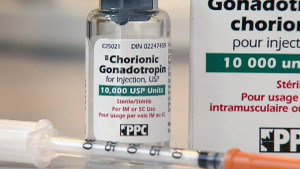
Human Chorionic Gonadotropin (hCG) is a water-based peptide hormone that is injected to replenish lost luteinizing hormone (LH) that TRT suppresses. A lack of hCG can result to deactivation of LH receptors present in the testes. This results in:
- Shrinkage of testes. For some, the testes can eventually lead to testicular atrophy. The degree of shrinking differs from person to person, but is more common among older men.
- Fertility can be greatly affected. If you want an offspring, hCG injection is necessary. If not given, it may greatly reduce fertility or you may not recover fertility.
- Less pain sensation. When the testes shrinks, some men feel pain in their testes. You can avoid this situation by injecting hCG.
- When there’s a huge dearth of hCG and LH, the scrotum shrinks too and pull up to the body, giving the pre-pubescent appearance. This isn’t good for a person’s body image perception, and may also affect how women see you sexually.
- Promotes pregnenolone production. Testes are the major producer of the hormone pregnenolone – a precursor to all steroid hormones such as cortisol, testosterone, DHEA, estrogen among other. It is also vital for proper mental functioning. hCG injection prevents a drug-induced deficiency of pregnenolone. People who are on TRT without hCG and then just start hCG reported a significant improvement on their mood, that most attributed to increase in pregnenolone levels.
When you inject hCG, you administer it into the fat beneath the skin the same as diabetics administer insulin. Research on the use of subcutaneous injection in men has showed the effectiveness of 250IU EOD dose. You can look for diabetes patient education material on how to administer insulin injection to be used for testosterone injection or hCG.
Guidelines on Anastrazole and Aromotase Inhibitors
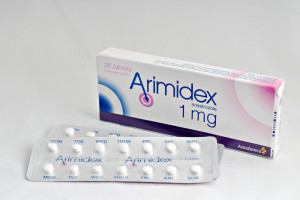
Elevated serum estradiol/E2 (30pg/ml and above) can interfere many benefits of testosterone injection. A serum estradiol equivalent to 22pg/ml is near optimal and to be able to get near this level, a person should take Anastrozole. Many men who began with TRT experienced favourable results that later on faded as estrogen levels increase.
My advice is to begin Anastrozole at 1.0mg per week in divided doses beginning at the day of your first injection. Then follow up estrogen lab tests for any necessary Anastrozole dose adjustments. It is not a good idea to wait and check if your estrogen levels increase before taking action. Take Anastrozole EOD if possible.
Testosterone injection with a dose of 100mg should result in 800 to 900 total testosterone (TT) range. While this is a good result, monitor your free testosterone (FT) or the bio-available testosterone. Some doctors won’t bother looking at the TT numbers at all. With age, SHBG (Sex hormone-binding globulin) levels increase while FT levels decrease.
See, a TT of 1000 of a young man won’t be the same as the TT of 1000 for an older man with high SHBG levels, because the FT level of the older man will likewise be well below, even though they have the same TT. Lab ranges presented on lab reports are age-adjusted.
Further, you have to know about prostate-specific antigen (PSA), problems in the prostate and digital rectal exam. Estrogen is a major factor of enlarged prostate or BPH (Benign prostatic hyperplasia). Many find that decreasing estrogen to 22pg/ml improves their urine flow as well as BPH. You also have to monitor your haematocrit levels as part of routine lab work.
Hormone Therapeutics Testosterone Therapy
Being a leading provider of low testosterone therapy solutions, we are always looking for newer ways to improve blood testosterone levels for our patients. We believe on improving testosterone levels with not only different testosterone treatment options that we offer, but also with diet, exercise, and therapeutic methods. Over the years, we have seen that our patients have greatly benefited from our Low-T therapy and treatment solutions, and our network of patients have grown across across all major cities of United States, including: Los Angeles, Houston, Miami, Chicago, Jersey City, and Seattle.
If you or a loved one is dealing with low blood testosterone levels, contact us today to get a free evaluation of your Low-T symptoms and see how our treatment options can help you with your low testosterone.
Sign up today and Get our ebook, ‘Naturally Increase Your Testosterone Levels’ absolutely FREE.
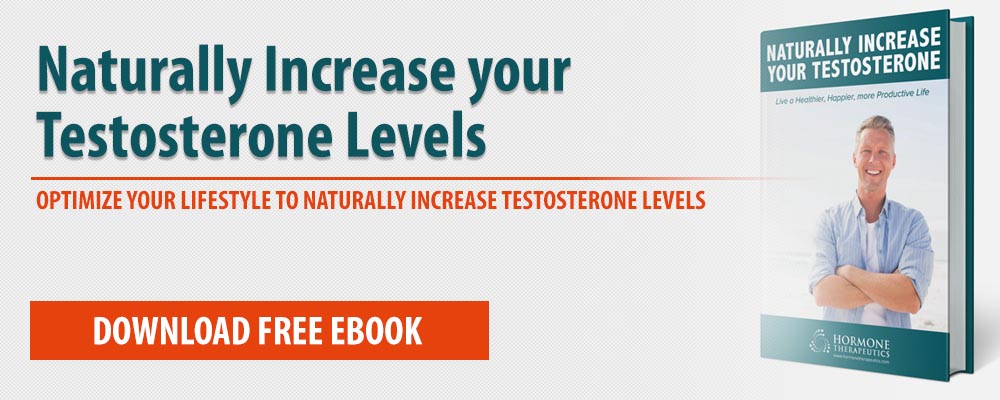
What You Need to Know about Testosterone Injection Protocol
Saleamp Design January 17th, 2017
Posted In: Testosterone Therapy
Tags: anastrozole, aromatase inhibitors, free testosterone, HCG, Human Chorionic Gonadotropin, LH, Luteinizing Hormone, pregnenolone, prostate-specific antigen, serum estradiol, testicular atrophy, testosterone, Testosterone Enanthate, testosterone injection, Total Testosterone, TRT, TRT protocol
Here’s What You Should Know More about Testosterone Levels
 How Do I know my Testosterone levels?
How Do I know my Testosterone levels?
With all this information on testosterone and the benefits of maintaining proper testosterone levels, you might be wondering about the specific testosterone levels you have seen. What is a normal testosterone levels? How much testosterone are you supposed to have, and how do you find out your current level? Well, it’s a tricky question. Part of the problem is that despite years of efforts and calls for action, hormone testing is still not universally standardized.
There has been positive movement towards a standard set of testing, but we’re not there yet. The other issue is that many doctors don’t agree on just how much testosterone a person, male or female, should have in their bodies. There is a rough “normal range”, but some doctors seem to play a little fast and loose with the low and high ends of the range.
Many doctors and labs don’t take into account factors like age and physical condition, and it means that you might have to do some research on your own or see a specialist to really understand your testosterone situation.
 Flaws in the Accepted Blood Testing System
Flaws in the Accepted Blood Testing System
LabCorp uses a Total Testosterone range of 348 – 1197 ng/dl (nanograms per deciliter). According to this reference range, one man with a 355 ng/dl would be considered normal while his neighbor at 345 ng/dl would be considered to have low testosterone and if they were lucky their health insurance would cover Testosterone Replacement Therapy. Also, a neighbour across the street might have a Total Testosterone level of 1150 ng/dl and he would also be considered normal like the man with a 355 ng/dl. Only a few years ago LabCorp and the insurance companies considered 249 the lower end of normal rather than 348.
The biggest problem comes when age is not factored into the analysis and 355 ng/dl is considered normal whether the patient was 20, 40, 60 or 80?! It also does not matter if the patient was obese, super fit, thin, had a pituitary gland issue or exhibited any of the symptoms of low testosterone?!?!
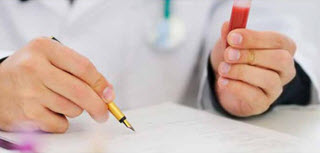 This is why having an excellent medical team to assess your blood tests, physical and medical history is critical. We rarely know what our baseline was from age 19 and everyone has their own sweet spot across Testosterone and all of the other hormones.
This is why having an excellent medical team to assess your blood tests, physical and medical history is critical. We rarely know what our baseline was from age 19 and everyone has their own sweet spot across Testosterone and all of the other hormones.
The fact that reference ranges don’t break patients down by age or health status explains why a 30-year-old man can go to his doctor with all of the symptoms of low T, only to be told that his T levels are fine because they’re within the “normal” range. If you’re 30 (or even 50), but have the same testosterone level as an 80-year-old, diabetic man, your doc may say you’re okay, but you’re still not going to feel good. Plain and simple.
Contact Hormone Therapeutics to get blood tested and a Physician evaluation of your results and treatment options!
Reference Ranges for Testosterone Levels in Men
So, in the interests helping you with of self-directed research, here are average testosterone levels for men up to age 54. The figure to pay attention to here is “Mean Total Test”, which is the average level for men of that age. This data is taken from a 1996 study involving hundreds of participants.
If you have your testosterone levels tested and your levels are approximately at the mean level for your age, then you probably don’t suffer from low testosterone.
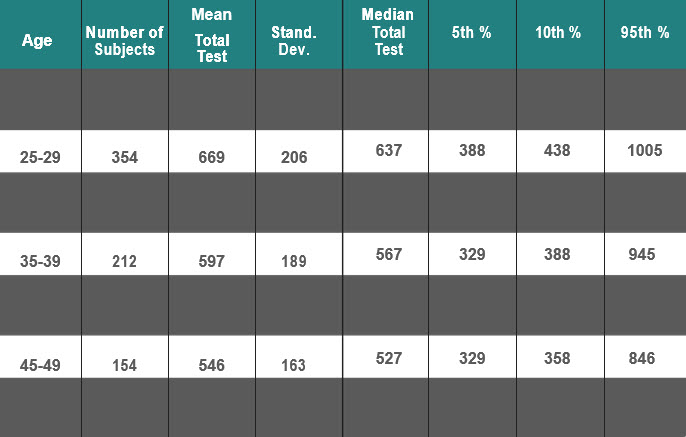
Optimal Testosterone Levels
 Of course, just because you’re not suffering from medically low testosterone doesn’t mean you wouldn’t benefit from more. Those numbers are the average levels only, not the best levels. Research hasn’t determined a hard and fast rule for the optimal levels of testosterone. Some men are fine at the low end of the normal range, while others need to be at the very top to feel their best. What’s normal and what’s optimal?
Of course, just because you’re not suffering from medically low testosterone doesn’t mean you wouldn’t benefit from more. Those numbers are the average levels only, not the best levels. Research hasn’t determined a hard and fast rule for the optimal levels of testosterone. Some men are fine at the low end of the normal range, while others need to be at the very top to feel their best. What’s normal and what’s optimal?
Anecdotal evidence shows that many men start to feel the effects of low testosterone at the 500 ng/dl mark. Although this shouldn’t be taken as gospel, it does seem that staying above 500 ng/dl is a good idea for most men.
Overly high levels of testosterone typically aren’t something people need to worry about. Although there are detrimental effects to having too much testosterone, such as thick blood and sleep apnea, excess testosterone isn’t a common condition. To be sure, it’s highly unlikely that anyone would reach those levels by following the natural and food-based advice listed here.
How to Test Your Testosterone Levels
Contact Hormone Therapeutics for a Free Low T evaluation and if you exhibits symptoms we will set up your comprehensive blood tests. Contact us right now!
Hormone Therapeutics aims to help people looking to improve and optimize their health through natural means or through the guidance of our physicians.
Don’t miss out our free weekly tips and news on Low T, hormone balancing, healthy living, nutrition and a lot more.
Want more?

Sign up today and Get our ebook, ‘Naturally Increase Your Testosterone Levels’ absolutely FREE.
Here’s What You Should Know More about Testosterone Levels
Saleamp Design November 1st, 2016
Posted In: Low T Info
Tags: blood test, blood tests, doctor, free evaluation, free testosterone, growth hormone, HGH, low t, low t doctor, low t physician, low testosterone, normal levels, physical exam, physician, pituitary gland, testosterone, testosterone levels, Total Testosterone
Top 7 Reasons to Naturally Increase Testosterone Levels
 A host of human hormone research studies have demonstrated that, in order to improve health and naturally increase testosterone levels, it must go hand-in-hand.
A host of human hormone research studies have demonstrated that, in order to improve health and naturally increase testosterone levels, it must go hand-in-hand.
The hard part of sifting through all of that complex research is that it’s often difficult to tell the cart from the horse. Health and Testosterone are so closely linked in men that it’s hard to see when low T causes poor health, or when poor health causes low T.
Do we become healthier when we naturally increase testosterone levels, or by making positive lifestyle changes, do our bodies naturally increase testosterone levels? One thing that is clear, though, is that by taking manageable steps to naturally increase your testosterone, you’re putting yourself into a Win/Win situation. These lifestyle choices are just good health advice, and they also increase your T. We have also seen a scientific study of 83,000 US veterans over a 15 year period assessing the benefits of Testosterone Therapy.
This study showed that US veterans with low testosterone, supplemented under Physician guidance back to normal levels have lower incidence of heart attack, stroke, prostate cancer and mortality.
Top 7 Reasons to Naturally Increase Testosterone Levels
Here are our Top Seven reasons to naturally increase testosterone levels that will undoubtedly make you a much happier and healthier Man (increasing testosterone does help with all of the symptoms and issues caused by Low T):
 Increase Muscle Mass and Overall Strength
Increase Muscle Mass and Overall Strength
There is no doubt that an increase in testosterone will positively impact your entire muscular system by increasing crucial muscle protein synthesis that contributes directly to muscular growth. An upgrade for your muscular system, at any and every age, will naturally lead to a healthier, more confident and capable you.
 Increase Overall Heart Health
Increase Overall Heart Health
The heart is the single most important muscle in your body. An increase in testosterone will not, by itself, lead to the prevention of cardiovascular disease, but the direct benefits derived from naturally increasing your Testosterone level will lead directly to more sustainable cardiovascular health if your physician monitors and manages the patients red blood cell count and hematocrit levels.
 Decrease Your Body Fat Percentage
Decrease Your Body Fat Percentage
Every medical study has proven that men suffering from obesity have a consistently lower-than-average testosterone level (and coinciding above-average estrogen levels) and there are clear reasons for this. When our testosterone levels decrease, insulin and glucose regulation decreases accordingly as the body’s natural ability to metabolize fat also declines. Testosterone levels play a crucial role in the body’s insulin and glucose regulation as well as the body’s ability to metabolize fat.
 Fortify Your Skeletal System
Fortify Your Skeletal System
As we age, men can suffer from the debilitating effects of osteoporosis but testosterone is an often overlooked health ingredient that plays a significant factor in overall bone density and strength. Testosterone is a key component in effective bone mineralization and resorption, increasingly important as we age and our bones tend to lose a degree of density.
 Reignite the Libido
Reignite the Libido
The hard fact is that the primary function of testosterone is as a vital reproductive hormone. It returns desire as well as sexual function.
 Cognitive Ability
Cognitive Ability
Testosterone helps regulate cortisone, which is a stress hormone, and affects the efficiency of our brain’s neurotransmitters. When men suffer from decreased testosterone levels they lose some ability to effectively regulate cortisol levels, which can cause neurotransmitters malfunction and lapses in memory.
 Delay, Decrease or Offset Effects of Alzheimer’s
Delay, Decrease or Offset Effects of Alzheimer’s
Alzheimer’s and dementia are most frequent in 65+ men often caused by Andropause. In addition, a healthy testosterone level is a distinct competitive advantage in the game that we call “life”. Feel the way you used to feel and improve your drive, confidence, energy, look, outlook, sexual interest and function while living a healthier life.
Hormone Therapeutics Physician Guided Testosterone Replacement Therapy
 These are all improvements you can achieve through natural means. Natural means will increase testosterone levels, however, they will not always optimize your levels to where you feel the way you used to feel for reasons including hypogonadism, aging, health conditions and more. These are great healthy ways to live your life, however, the expert Hormone and Testosterone physicians at Hormone Therapeutics can put you on a proper Testosterone and Hormone Replacement Therapy program.
These are all improvements you can achieve through natural means. Natural means will increase testosterone levels, however, they will not always optimize your levels to where you feel the way you used to feel for reasons including hypogonadism, aging, health conditions and more. These are great healthy ways to live your life, however, the expert Hormone and Testosterone physicians at Hormone Therapeutics can put you on a proper Testosterone and Hormone Replacement Therapy program.
Hormone Therapeutics will assess your symptoms and complete medical history. We will schedule your complete blood tests. We will interview you and then develop a program specifically for you. We will give you another blood test at the 6-8 week mark of treatment and also a 24 point self-evaluation of the progress against the symptoms of low testosterone.
After further blood testing and evaluation of your progress we can adjust your treatment as needed. The treatment could include supplemental testosterone, HCG to encourage your system to naturally produce more testosterone, estrogen blockers to manage your Estradiol : Total Testosterone ratio and optimize hormone balance. There are also many other factors and tests we can assess and other treatments we can consider depending on your unique situation.
Always start with a natural approach to optimizing your health. Good clean living, a healthy diet, exercise and sleep patterns will go a long way to giving you the life and health you desire. Our Physicians are here to help you.
OPTIMIZE YOUR HEALTH!
Hormone Therapeutics will help you increase testosterone levels the natural way, working with you and getting you back to feeling how you remember feeling went you felt great! Contact us for a free evaluation. www.hormonetherapeutics.com/contact-us/
Hormone Therapeutics aims to help people looking to improve and optimize their health through natural means or through the guidance of our physicians.
Don’t miss out our free weekly tips and news on Low T, hormone balancing, healthy living, nutrition and a lot more.
Want more? 
Sign up today and Get our ebook, ‘Naturally Increase Your Testosterone Levels’ absolutely FREE.
Top 7 Reasons to Naturally Increase Testosterone Levels
Saleamp Design October 4th, 2016
Posted In: Low T Info
Tags: benefits of TRT, clean, Cognitive Ability, Decrease or Offset Effects of Alzheimer’s, Decrease Your Body Fat Percentage, Delay, diet, estradiol, Fortify Your Skeletal System, free testosterone, HCG, health, healthy, Increase Muscle Mass and Overall Strength, Increase Overall Heart Health, life, longer, low t, natural, naturally increase testosterone, optimize, physician, Reignite the Libido, testosterone, Testosterone replacement therapy, Total Testosterone
Linking Erectile Dysfunction and Low Testosterone
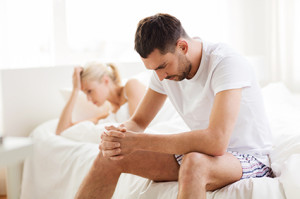 Erectile dysfunction is a common problem that affects many men. This being said, it is important to explore its causes and how it can be addressed. Because of testosterone’s prominence in men’s sexual function, it has been explored as a determining factor in erectile dysfunction. The following study describes how erectile dysfunction and low libido may be related to available testosterone in the body. It also examines how supplementing this testosterone deficiency may provide a better for you.
Erectile dysfunction is a common problem that affects many men. This being said, it is important to explore its causes and how it can be addressed. Because of testosterone’s prominence in men’s sexual function, it has been explored as a determining factor in erectile dysfunction. The following study describes how erectile dysfunction and low libido may be related to available testosterone in the body. It also examines how supplementing this testosterone deficiency may provide a better for you.
Different Types of Testosterone for Erectile Dysfunction
Many do not know that there are different types of testosterone in the body and that it is important to take note of their individual levels within a person’s system. The testosterone level measured when men go to the doctor is typically limited only to Total Testosterone. Patients only get the sum of unbound and bound testosterone present in the patient’s system.
The problem with this that the total amount of testosterone measured is not always fully available for use. Because of the presence of bound and unbound testosterone in the system, the Total Testosterone measurement for a person may not equal the precise amount of testosterone he is actually able to utilize. This is called Free Testosterone.
This is because bound and unbound testosterone are indicators of whether or not a testosterone can be immediately used by the body this Free Testosterone is a more important measure. A bound testosterone is one attached to proteins that need prior removal before it can be used, thereby needing some effort to be utilized. One of the proteins that binds to testosterones is albumin. While albumin does attach to testosterones, it is easily removed by the body when the testosterone is needed.
However, there are also particularly stubborn binding proteins that cannot be removed from the testosterone, thus rendering it unusable. An example of this is the Sex hormone binding globulin, or SBHG. Once SBHG attaches to your testosterone, it becomes unusable due to the difficulty of separating the protein from the testosterone, limiting the amount of available testosterone in the body.
The differences in functions and availability of these kinds of testosterone highlight the need to test for different types of testosterone. In studying testosterone levels in the system, it’s important to take into account the level of total testosterone, bio-available testosterone and free testosterone, along with the prevalence of SBHG proteins in the patients.
Free testosterone refers to unbound testosterones which are readily available to the body and thus, can be used with minimal effort. Bio-available testosterone, on the other hand, corresponds to both the free testosterones and testosterones bound to easily removed proteins such as albumin. SBHG limits the amount of Bio-available testosterone, giving a skewed amount of usable testosterone when analyzing the total count.
Erectile dysfunction’s relationship to your testosterone levels
Because of testosterone’s role as a primary sex hormone that establishes male traits and sex drive, research has been made to explore how testosterone levels and erectile function influence each other.
According to the study, there exists a proportional correlation between testosterone levels and erectile function, linking higher levels of the hormone with an increased sex drive and better erections. In addition to this, it also established that low testosterone levels was consistently present in cases of erectile dysfunction, and that low presence of the hormone may hamper erectile dysfunction medications such as Viagra from working properly.
Ultimately, the study concluded that a low amount of free testosterone coupled with high levels of SHBG posed the highest risk for erectile dysfunction in men, emphasizing the importance of monitoring testosterone levels when addressing the problem. Taking from the study, it goes that while there are many factors that can contribute to erectile function, it is useful to check testosterone levels because it was seen as a consistent influencing factor for erectile dysfunction as based on the data.
Because of testosterone’s effect on erectile dysfunction, aging men who are experiencing its symptoms are advised to first take a testosterone blood test that can measure the amount of total testosterone, free-testosterone and SHBG in their system. Because ultimately, it is free testosterone that determines the ready supply of the hormone in men, testing total testosterone may not provide sufficient information regarding one’s actual hormone levels. By testing all levels of testosterone, doctors may be able to determine if it is this deficit in available testosterone that hampers proper erectile function and sexual performance, providing the patient with better options of addressing the problem.
Hormone Therapeutics can help you learn more about testosterone
With the emergence of treatments for low testosterone levels today, you don’t have to bear its consequences anymore. This is why we have so many wives reaching out to us as well to find help for their loved one. Hormone Therapeutics can help you determine if low testosterone that is causing your sexual problems and provide testosterone replacement therapy, to remedy your concerns. We can treat with testosterone therapy, and/or erectile dysfunction treatments.
If you want to learn more about how to monitor your testosterone levels or fix low testosterone concentration and its consequences, our company can help you clear up your reservations. Give us a call and we’ll be happy to assist you as you take your first step towards improving your quality of life.
Linking Erectile Dysfunction and Low Testosterone
Saleamp Design April 5th, 2016
Posted In: Low T Info
Tags: albumin, Cialis, depression, ED, erectile dysfunction, erection, fatigue, free testosterone, impotence, libido, low libido, low t, low testosterone, sex, sexual function, SHGB, testosterone, Total Testosterone, Viagra
Testosterone Benefits Cardio Issues in Veterans Pending New Research
A new study, utilizing research data from Veteran Affairs showed that veterans utilizing testosterone replacement therapy had less chance of suffering from heart attack, stroke, or death compared than veterans who were not on testosterone treatment. The study examined over 83,000 veterans who were diagnosed with low testosterone by the Veterans Affair Medical Center over a 15 year period from 1999 to 2014.
One of the key aspects to healthier outcomes was testosterone therapy that returned the veteran to normal testosterone levels v. higher and supra-physiological levels of testosterone supplementation
Here is a link to an article about the study in Science Times:
http://www.sciencetimes.com/articles/7093/20150813/testosterone-replacement-could-benefit-veterans-cardiovascular-health-study-shows.htm
Testosterone Benefits Cardio Issues in Veterans Pending New Research
Saleamp Design August 20th, 2015
Posted In: Health & Wellness, Low T Info, Testosterone Therapy
Tags: benefits of testosterone, benefits to your body, cardiovascular disease, cardiovascular health, cardiovascular risk, heart disease, hormone replacement therapy, low t, low testosterone, low testosterone levels, myocardial infarction, t therapy, Testosterone replacement therapy, testosterone therapy, Total Testosterone
What are the indicators that someone needs Testosterone Replacement?
What are your Total Testosterone and Free Testosterone levels? Do they fall within the norms, are low or high, as described in our other blogs and sections?
What are the indicators that someone needs Testosterone Replacement?
Saleamp Design March 17th, 2015
Posted In: Low T Info, Uncategorized
Tags: androgen deficiency, erectile dysfunction, fatigue, Free Testosterone levels, Hormone Replacement physician, hypogonadism, irritability, low libido, Low T symptoms, low testosterone levels, symptoms of low testosterone, testosterone replacement, Testosterone replacement therapy, testosterone therapy, Total Testosterone
What are Normal Testosterone Levels?
Treating a patient solely based on testing levels is not a proper way to evaluate and treat a patient, however, understanding the normal ranges for a patient is an important piece to the puzzle. What are Normal Testosterone Levels? The normal level of Total Testosterone is often described as between 350-1200 ng/dl (270-1070 ng/dl in another study), however, this range is not associated with age and everyone agrees that men have peak testosterone levels in their early twenties and then slowly decline at 1-2% per year after that. Normal values will vary by lab as will the reference range. In the US, ranges are seen in nanograms per deciliter.
What are Normal Testosterone Levels?
Saleamp Design March 16th, 2015
Posted In: Health & Wellness, Low T Info, Uncategorized
Tags: androgen deficiency, erectile dysfunction, fatigue, Free Testosterone levels, Hormone Replacement physician, hypogonadism, irritability, low libido, Low T symptoms, low testosterone levels, symptoms of low testosterone, testosterone, Testosterone replacement therapy, Total Testosterone


 How Do I know my Testosterone levels?
How Do I know my Testosterone levels?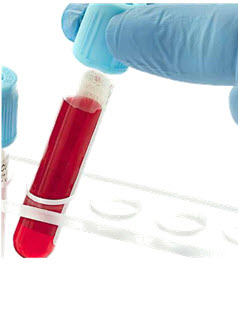 Flaws in the Accepted Blood Testing System
Flaws in the Accepted Blood Testing System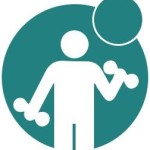 Increase Muscle Mass and Overall Strength
Increase Muscle Mass and Overall Strength Increase Overall Heart Health
Increase Overall Heart Health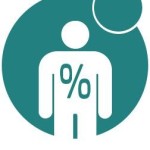 Decrease Your Body Fat Percentage
Decrease Your Body Fat Percentage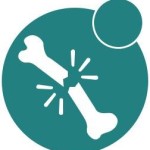 Fortify Your Skeletal System
Fortify Your Skeletal System Reignite the Libido
Reignite the Libido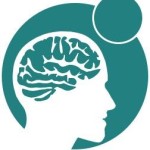 Cognitive Ability
Cognitive Ability Delay, Decrease or Offset Effects of Alzheimer’s
Delay, Decrease or Offset Effects of Alzheimer’s